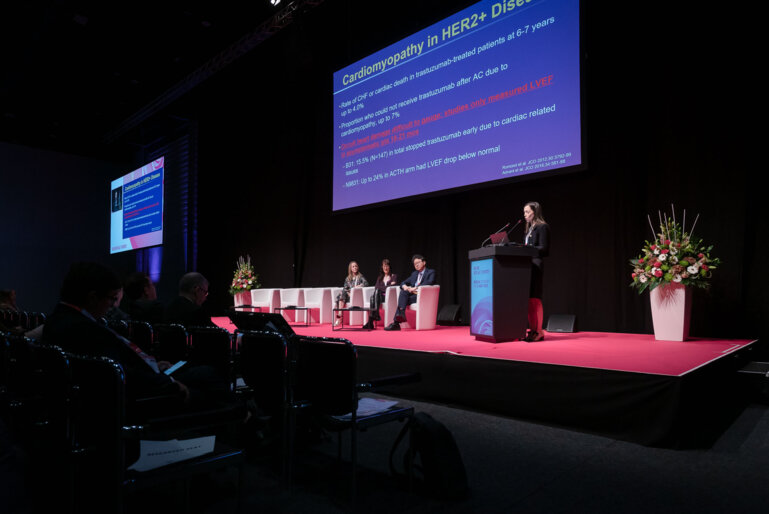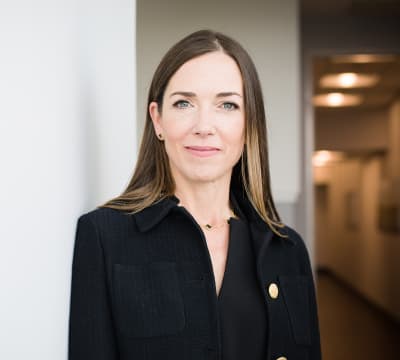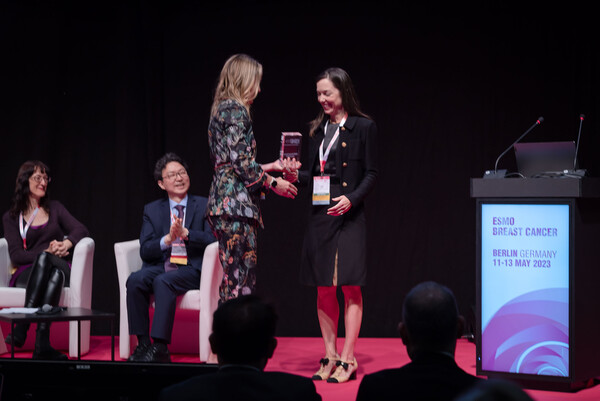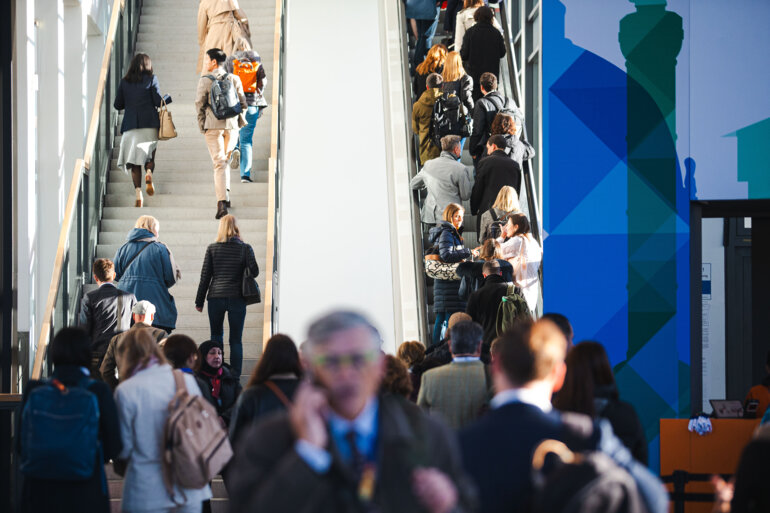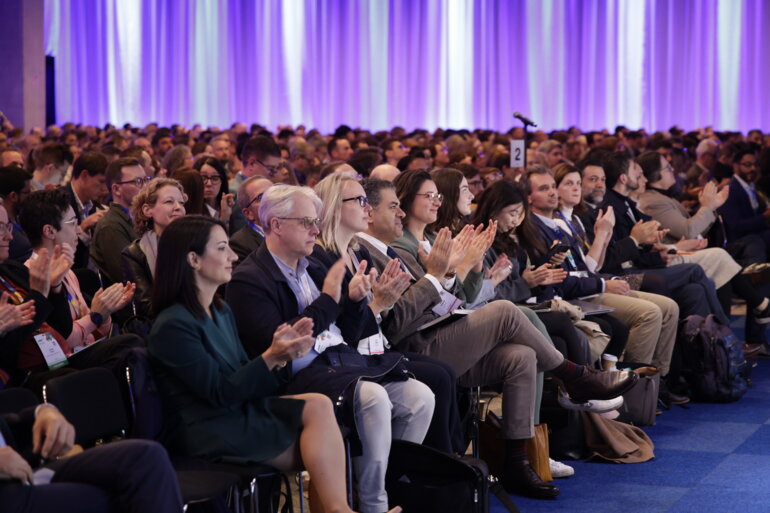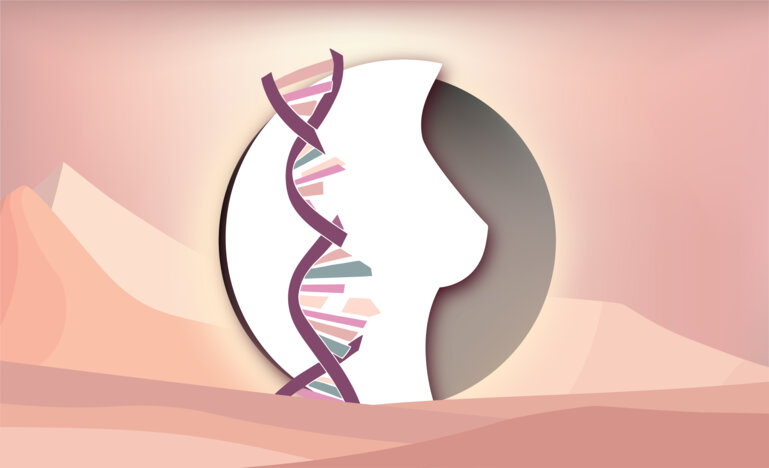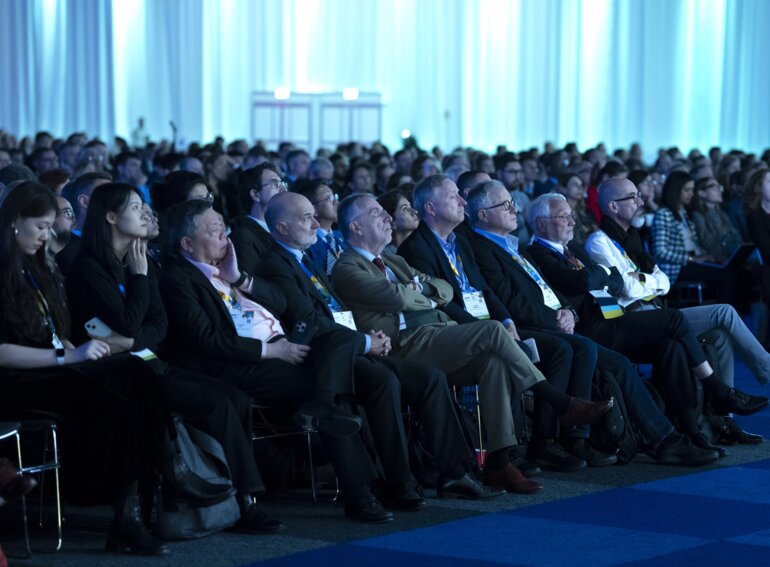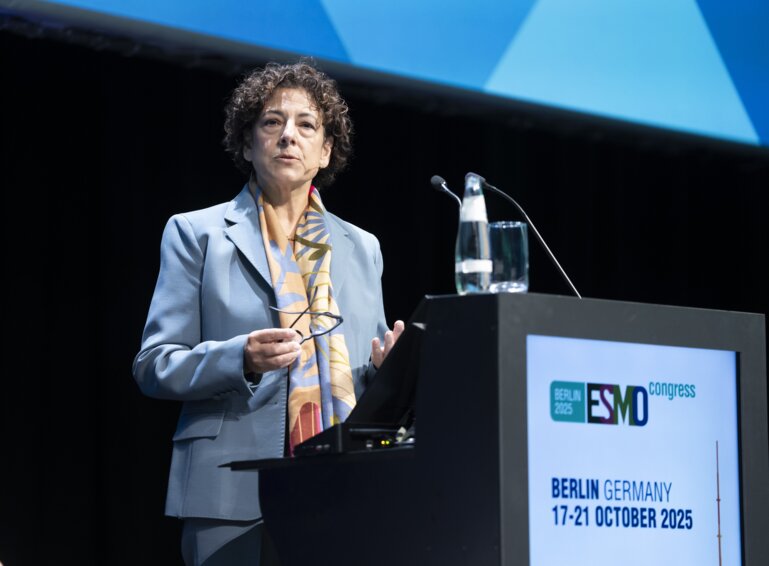In her keynote lecture, recipient of the ESMO Breast Cancer Award 2023, Prof. Sara A. Hurvitz talks of the need to challenge accepted paradigms to progress clinical research
After a meandering journey during the early stages of her career, Prof. Sara A. Hurvitz from the University of California, Los Angeles (UCLA), USA, has achieved important milestones in breast cancer research, including being recognised with the ESMO Breast Cancer Award 2023 in Berlin during the ESMO Breast Cancer 2023 (11–13 May). “With high-school dreams of being a choreographer and a period of work as a legal assistant, my start at medical school was a bit of a challenge for my confidence,” she commented, “however, it also allowed me to recognise the benefits of taking the road less travelled.”
As mentioned in your keynote lecture ‘Progress through challenging dogma’, to what extent is unorthodox thinking fundamental to pushing the boundaries of cancer research?
The power of observation in science cannot be overstated. It is so important to continually investigate our own findings and those of others through a fresh lens. And we should not be afraid to oppose current thinking. If we look at the history of breast cancer research, we appreciate that some of the major advances have been made by people who have challenged dogma. Take Dr Bernard Fisher, for example: without his pioneering work in surgery, we might still be doing radical mastectomies believing incorrectly this would prevent metastatic disease. In recent times, the move from a bench-to-bedside approach to more of a bidirectional flow of information between the clinic and the laboratory has translated into improved knowledge on how to manage HER2-positive breast cancer, in the better use of CDK4/6 inhibitors and in challenging the widespread use of anthracyclines.
You have played a key role in some of these research areas, what do you consider to be your main career achievements to date?
About 17 years ago, when I was given the opportunity to build the breast cancer programme at UCLA, I brought from my previous work in lymphomas an interest in investigating the immune effects of monoclonal antibodies and this laid the foundations of my future research. My first big project in breast cancer was looking at whether Fc gamma receptor genotype influenced the benefit from trastuzumab in non-metastatic HER2-positive breast cancer (Clin Cancer Res. 2012;18:3478–3486). The work was correlative, using samples from a clinical trial – the large BCIRG006 study – to answer basic science questions. Biomarker-driven studies, mostly in neoadjuvant clinical trials, have since been an underlying theme of my work.
Subsequently, I was the principal investigator of the phase II Translational Research In Oncology (TRIO) B07 trial, investigating the efficacy and safety of dual HER2 targeting with lapatinib and trastuzumab. The trial provided the opportunity to study tumour tissue prior to, during and at the end of neoadjuvant therapy. The results showed that a single cycle of targeted therapy induced considerable changes in gene expression in the tumour, surrounding stroma and immune cells (Nat Commun. 2020;11:5824), which opened the door to identifying biomarkers that could be indicative of response to treatment. Continuing to work with novel therapies in the neoadjuvant setting, I was involved in the development of trastuzumab-emtansine (TDM-1), the first antibody–drug conjugate (ADC) approved for breast cancer. I subsequently helped to design the phase III KRISTINE study looking at TDM-1 plus pertuzumab, the recently published biomarker data which confirmed the role of the immune microenvironment in influencing response to treatment (Breast Cancer Res. 2023;25:2). I am now working with the next-generation ADC, trastuzumab deruxtecan, in both the metastatic and neoadjuvant settings. At the same time, I have extended my research with this type of trial design to the neoadjuvant treatment of non-HER2-positive breast cancer, looking at agents such as abemaciclib and the new protein degrader ARV-471.
Part of my keynote lecture is about recognising my mentors and highlighting some projects I am working with my mentees on, emphasising how important mentorship is in moving the field forward. Looking ahead, I am going to focus on training the next generation of physician scientists to conduct clinical research and to help their career progression, which is one of the most enjoyable and rewarding things that I have done in recent times.
And what advice would you give to young researchers?
Look for opportunities, be observant and have the courage to challenge paradigm thinking. In addition, get a good mentor. I have been lucky enough to have had some excellent mentors who really helped to shape my career. And mentors should recognise that the process is a two-way street – there are a lot of very smart young people out there who have great ideas and who can help to augment a group’s research.
Don't miss:
Welcome to the ESMO Breast Cancer 2023 and 2023 Award Lecture
Progress through challenging dogma - Award Lecture, 11.05.2023, h. 13:00 – 13:40, Berlin Hall

